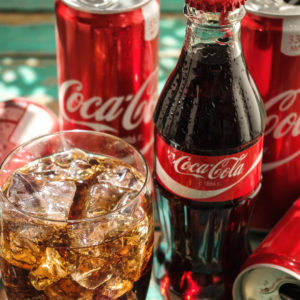The District of Columbia City Council may soon impose a new excise tax on “sugary” beverages. At 1.5 percent per ounce, it would be the third-highest in the country, after Seattle, Washington and Boulder, Colorado, which levy a 1.75 and 2 cent-per-ounce tax respectively.
Introduced on October 9, 2019 by Councilmember Brianne Nadeau, the Healthy Beverage Choices Act would raise an estimated $21 million annually and apply to any beverage with “natural common sweeteners,” including sports drinks, sweetened iced coffees and teas, juices, coconut water, and kombucha. The price of a two-liter bottle of soda in D.C. would increase by 46 percent, from $2.19 to $3.20.
The excise tax proposal was introduced one week after the sales tax on sugary drinks increased by 33 percent, from 6 percent to 8 percent, which would raise an estimated $3.2 million annually. In other words, the excise tax would raise 650 percent more than the sales tax.
It is not as if the nation’s capital needs new revenue for any purpose. In 2019, D.C. boasted a historic budget surplus of $872 million. Any funds needed for the purported purposes of either the sales tax or the excise tax are readily available without either tax.
Indeed, revenue from both taxes are supposed to be used for various programs to improve municipal health, an interesting objective for a city consistently named as one of the healthiest in the U.S. And there is no guarantee that the money will not be used for such programs. In Seattle, the city imposed a soda tax in 2017 to fund “job training programs, initiatives aimed at closing the food gap, and support programs for at-risk children.” The nearly $6 million in revenue generated by the tax was simply dumped into the general fund.
Philadelphia’s 1.4 cent-per-ounce soda tax, enacted in 2016, also failed to produce its promised results. A Stanford University report found that the tax was “ineffective at reducing consumption of unhealthy products” and instead of choosing alternative beverages, individuals repeatedly chose to travel to neighboring municipalities to obtain the sugary drinks they want at a lower cost. Soda sales decreased by 51 percent in the city and increased by 43 percent outside the city limits.
A soda tax does not prevent people from drinking what they want. Individuals purchase these drinks elsewhere, which hurts the local economy. As a regressive tax, it disproportionately impacts the low-income families the measure purports to help.
These taxes do not raise the estimated revenue because of the easy availability of alternative sources for these beverages. Maryland does not have a sugary beverage excise tax, and Virginia’s carbonated drink excise tax is imposed on manufacturers. Since D.C. is less than half the size of Philadelphia and many residents already shop outside the city limits, the decrease inside the city and increase outside the city will be even more pronounced that it was in Philly.
Rather than doubling down on the well-documented failures of Philadelphia and Seattle, D.C. should emulate cities and states that have removed or banned new soda taxes. In Cook County, Illinois, the soda tax was so unpopular that it was repealed by a vote of 15-1 a few months after its implementation. Arizona, Michigan, and Washington have chosen to eliminate the option to tax sugary drinks even before the food police put the proposals on the table.
Taxpayers and businesses in the D.C. are speaking out against the new taxes. More than 200 small businesses, restaurants, grocers, and corner stores have joined the Alliance for an Affordable DC, a citizens group opposed to any new taxes on everyday grocery items. Alliance member Tyrone Celey, who owns Compact Market in Trinidad, expressed his concerns about the new tax: “I’m most worried about my customers because as a small business, I can’t afford to absorb this tax, which means I’ll be forced to pass it along to them.”
Yared Gebru, owner of Elmira Market, an 11 year-old family business half a mile from the Maryland state line, explained that if the tax was implemented, many of his customers would simply “walk a couple more blocks to save a couple dollars on their purchase” across the border.
In a city that imposes an 8.95 percent income tax, tied for seventh highest in the country, the last thing residents need is a massive cash grab through an unfair, unworkable, and ineffective beverage tax. If the City Council believes the programs that would be funded by the new taxes are so critical, they should use or reallocate some of the ample resources they have from their record budget surplus.

